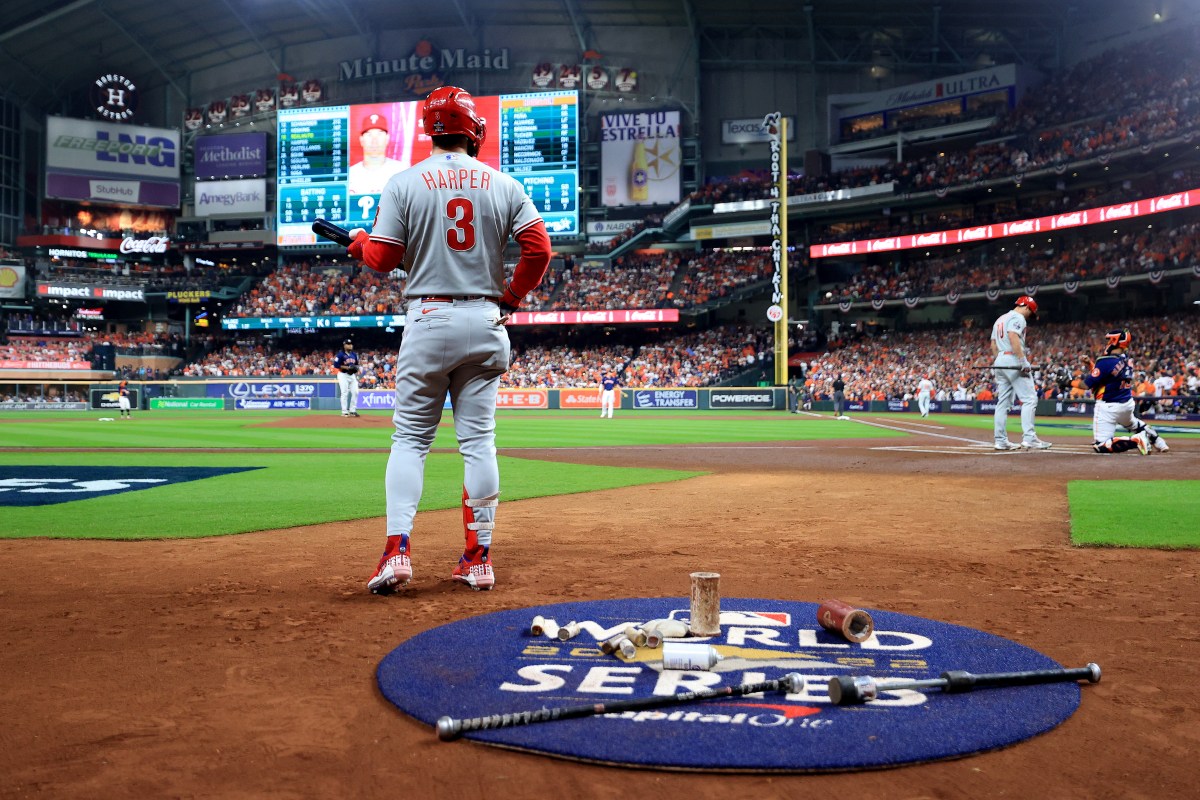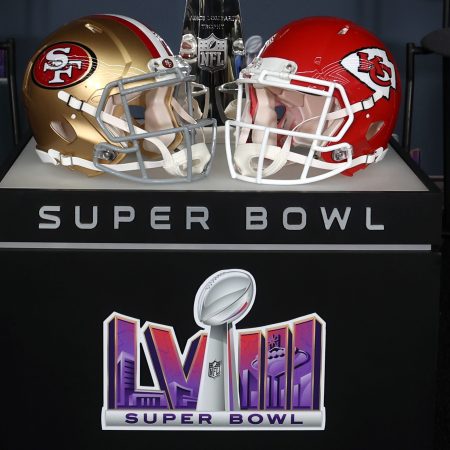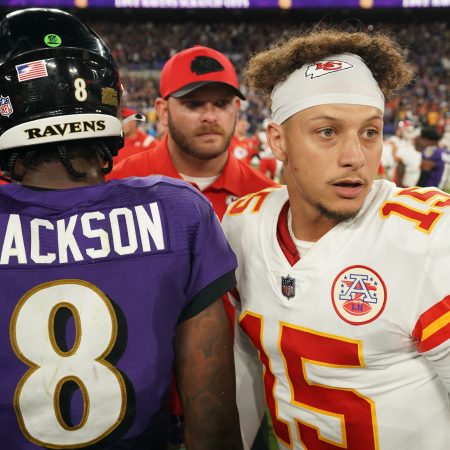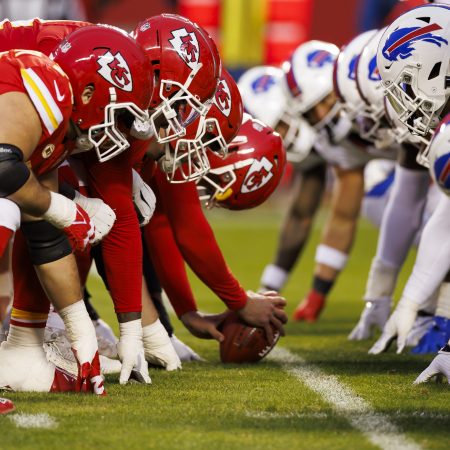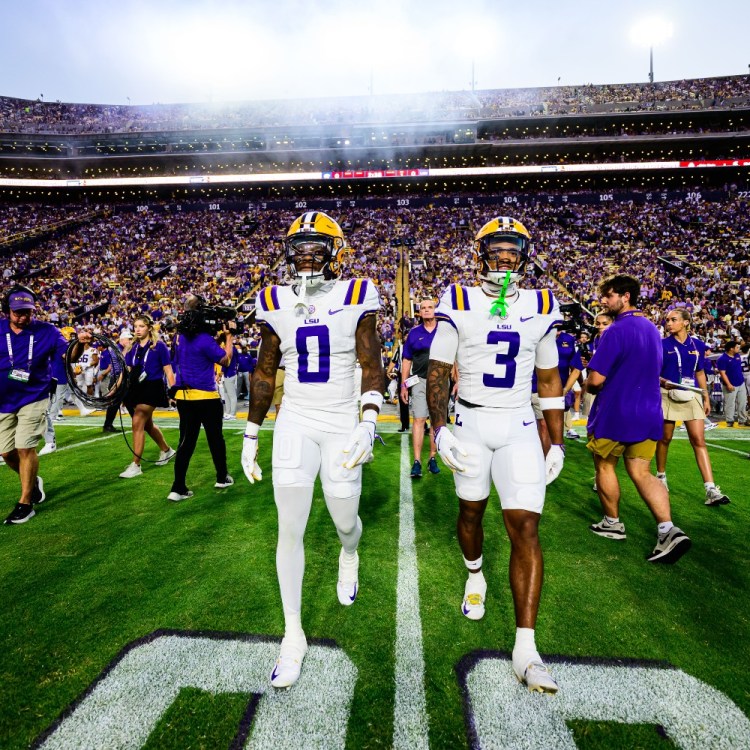MLB’s 2022 World Series report card is in, and it’s not much to call home about. The Fall Classic drew its second-lowest TV audience ever (or, at least, since Nielsen started tracking such things in 1968), at an average of 11.78 million viewers per game.
Only one other World Series in the last 54 years has attracted less attention: the 2020 COVID tournament, staged on neutral grounds in Arlington, Texas. At the risk of attracting internet ire from Los Angeles Dodgers fans, it’s hard to put too much stock in that bizarre brand of October (it arrived after a 60-game season; many players sat out for the season or missed critical games due to positive tests; and some playoff series were played in empty stadiums). Unsurprisingly, a ton of Americans found it a little difficult to focus on MLB that year, even when it was on its biggest stage.
From that perspective, then, 2022 represent the league’s lowest-watched “normal” season World Series ever. Did it deserve to be? No, of course not. The matchup had all the usual ingredients of an instant classic: a dynasty squad versus a plucky underdog, a generational talent vying for his first championship, a Hall of Fame pitcher still at the top of his game, a hotshot rookie (who would win MVP honors), moonshot home runs, a no-hitter (albeit a combined bullpen effort), a game-saving catch, one of the game’s most iconic managers finally winning his ring, etc.
The series even had its requisite dose of social media chatter, with bitter fans of practically every other MLB franchise cursing the Astros and their tainted 2017 title throughout the tournament. (In the end, some of them begrudgingly admitted that Houston seems to know a thing or two about baseball.) Many spectators just wanted to see Philadelphians go to battle with greased-up telephone poles.
There’s a natural inclination, whenever these low-viewership reports crop up, to put the blame on the teams/cities that made it to the final round. Say: “Well, if the New York Yankees played the Los Angeles Dodgers, or the Boston Red Sox played the Chicago Cubs, perhaps we wouldn’t be having this discussion.” But Philadelphia versus Houston isn’t a bad draw for Commissioner Rob Manfred. That’s the fourth-largest sports market in the U.S. squaring off against the eighth-largest.
It’s true, that someone, in some office at MLB headquarters, is twiddling their thumbs, waiting for the Yankees to make it back to their first World Series since 2009. In the last 15 years, only two World Series have attracted average audiences of over 19 million: that Yankees series against the Phillies, and the Cubs series against the (then) Cleveland Indians in 2016, which obviously was a historical event of a degree MLB can never expect to see again. (Game 7 attracted an average of 40 million viewers!)
A matchup of the Yankees and Dodgers this year would’ve likely pushed average viewership up past 15 million, and if the series went six or seven games, might’ve threatened the robust average in the 2017 World Series (18.92 million viewers, Dodgers-Astros…it was the Dodgers’ first appearance since 1988, and back when the nation had zero Astros fatigue), but it’s hard to say.
Realism is starting to set in for MLB. No one wants a Tampa Bay Rays-Colorado Rockies World Series next year (there is a 0% chance of that happening, for what it’s worth), but if it did, professional baseball seems to have reached an important stage of self-awareness. In the streaming era, getting 10 million people to agree to watch anything on a specific night is a holy achievement. Throughout the World Series, MLB went up against the NFL (though not on purpose, there was a rainout), and college football Saturday, not to mention every other streaming service and episodic programming known to man…and lived to tell the tale.
Baseball is no longer monocultural, which does seem to bother the sport’s executives; in recent years, owners, executives, and player representatives have voted on frenetic rule changes meant to make the game more digestible and exciting, to varying degrees of success. There are concerns that younger, scattered-attention generations may not have an appetite for a meandering game, which — in October, especially — blithely blows through dinners and bedtimes.
But for now, MLB is raking in $729 million annually from its broadcast rights package with Fox (which includes the World Series through the year 2028). The league is doing fine. This year’s numbers might’ve fared a little better had the Series had just one Sunday game (instead of two Saturday games, a difficult night to get eyeballs), but regardless, as The Athletic pointed out, there’s no shot the modern game can touch the 44.2 million viewers the Yankees and Dodgers drew in the 1978 World Series.
That era is gone, like so many other eras of the sport. This one has to compete with other sports, other platforms, other shows. Reggie Jackson had no problem beating out Mork and Mindy, but asking Bryce Harper to take on The Watcher, House of the Dragon, Dahmer, Andor and The White Lotus is a different story.
Whether you’re looking to get into shape, or just get out of a funk, The Charge has got you covered. Sign up for our new wellness newsletter today.
